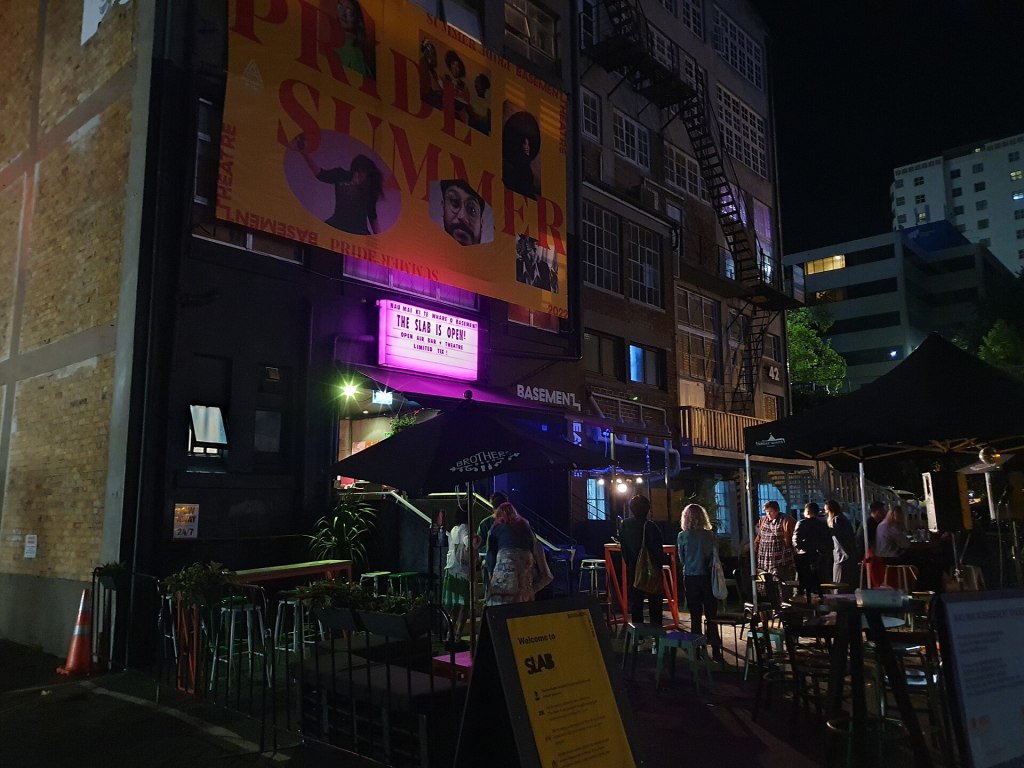Last week, New Zealand sprung into international headlines. But this time it wasn’t for Lorde, or climate refugees, or clean-green whatever. Rather, a political columnist was warning the world how New Zealand had been taken over by the far-right.
“A shadow is poisoning Middle Earth,” it reads.
Videos by VICE
“For all the excitement around Prime Minister Jacinda Ardern and her new government, the real power lies with the far right. And, more terrifying: the far right seized power by exploiting the very system meant to be a fairer version of democracy.”
This came as news to New Zealand. While 60,000 white nationalists marched on Warsaw this week, the takeover of “middle earth” had been so subtle as to remain basically undetectable for anyone with a vague awareness of local politics.
Far from being poisoned by the far-right, as American Ben Mack’s demented column alleged in The Washington Post, Aotearoa New Zealand last month swore in a progressive government, led by Jacinda Ardern. The Washington Post clickbait has been derided by New Zealanders across the political spectrum: right, left, and centre. It is “wrong on levels yet to be described by science,” was the line over at the Kiwi Journalists Association.
Firstly, Winston Peters and New Zealand First have not traditionally been an afterthought in New Zealand politics. To paraphrase Fairfax’s Henry Cooke, there are Kiwis in their mid-30s who have never known a world when Peters wasn’t in the headlines.
Indeed there was a period during the mid-90s when Peters, now Deputy Prime Minister and Foreign Minister, was arguably the most popular politician in New Zealand. Peters was tipped as the country’s first Māori Prime Minister. In late 1996, New Zealand’s first MMP election, New Zealand First snared 17 seats, or 13.35 percent of the vote. Peters became Deputy Prime Minister and Treasurer in a coalition led by Jim Bolger’s centre-right National Party.
Far from leaving the country “held to ransom,” 2017’s new government was announced 10 days after the special votes were in, a reasonable formation time. In Germany, another efficient Western liberal democracy that shares our mixed-member proportional system—and had their 2017 election the day after ours—ongoing negotiations are tipped to continue well into December.
On October 19 Peters announced that New Zealand First would enter a governance arrangement with Ardern, Labour and the Greens. In his decision speech, Peters sounded more like a Bernie Sanders or a Corbyn than anything resembling the far right. “Far too many New Zealanders have come to view today’s capitalism not as their friend, but as their foe. And they are not all wrong. That is why we believe that capitalism must regain its responsible, human face,” he said.
Thirdly, in their negotiations, Ardern and her colleagues appear to have skillfully quarantined New Zealand First’s worst ideas from the coalition agreement, and the nation’s political discourse. The Ardern government is proposing a dynamic progressive agenda, kicking things off with three years free post-secondary education, and a big expansion of paid parental leave to 26 weeks. They’ve adopted New Zealand First’s policy of a $20/hour minimum wage, the highest in the world relative to the median income.
They have not proposed banning non-citizens from owning property, but rather fulfilled Labour’s election pledge to crack down on wealthy non-resident speculators, who have fuelled the existing housing market’s affordability crisis. This deregulation had led to homelessness that Yale University alleges is the worst in the world, and has hit Māori people the hardest. All in a nation that once had the highest home ownership rates in the OECD. The new government will build 100,000 affordable new homes. As a corollary, modest cuts to record, sky-high migration levels will be implemented, with employers who exploit migrant workers the target. The new coalition is showing heart doubling our annual refugee quota, and Ardern has told Australian PM that Malcolm Turnbull Australia’s treatment of refugees on Manus Island is “not acceptable”.
Unlike America in the age of Trump and Charlottesville and Charleston, senior government figures have not equivocated about white supremacists, even if all of six National Front members did appear outside Parliament late last month. The tiny group of protesters were smartly glitter-bombed by hundreds of anti-racism activists and told they weren’t welcome by government MPs, before the police peacefully escorted them away.
While there’s a lot more mahi to be done, New Zealand has a world-leading bipartisan programme of reparations for Māori, through organisations like the Waitangi Tribunal and the Office for Treaty Settlements. We have impressive representation for women—50 percent of the combined Labour and Greens caucuses.
Thirteen of Jacinda Ardern’s 31-strong executive are Māori or Polynesian, including Peters and three of his Māori New Zealand First colleagues. Their presence is a powerful rebuke to white supremacists everywhere.
It’s not okay for The Washington Post to slander Aotearoa New Zealand with pernicious nonsense that combines neo-colonialist ignorance with Alex Jones hysteria. Despite Kiwi Twitter seeming united in their ridicule of the column (a first!), The Washington Post‘s PR team were offering up Mack for interview by NZ media such as Newstalk ZB on Friday.
It’s true that Winston Peters has made racist comments about Asian immigrants over his many years in opposition. But between 2005 and 2008, Peters served as Ardern’s internationalist mentor Helen Clark‘s Foreign Minister and strengthened our relationships with Asian countries. Peters even visited North Korea—a country the globe-hopping Mack equated New Zealand with in another Clickhole farce—and helped defuse tensions between the Hermit Kingdom and the West a bit.
Jacinda Ardern forges empathy with steel. In Aotearoa New Zealand, her policies and kaupapa are charging the air with hope. Contrary to the alleged march of the far right, it’s dozens of progressive activists who are being inspired to help this new government stay the course.
Alexander Bisley (Pakeha, Ngāpuhi) is a Kiwi writer published in the likes of Vox and GQ.




